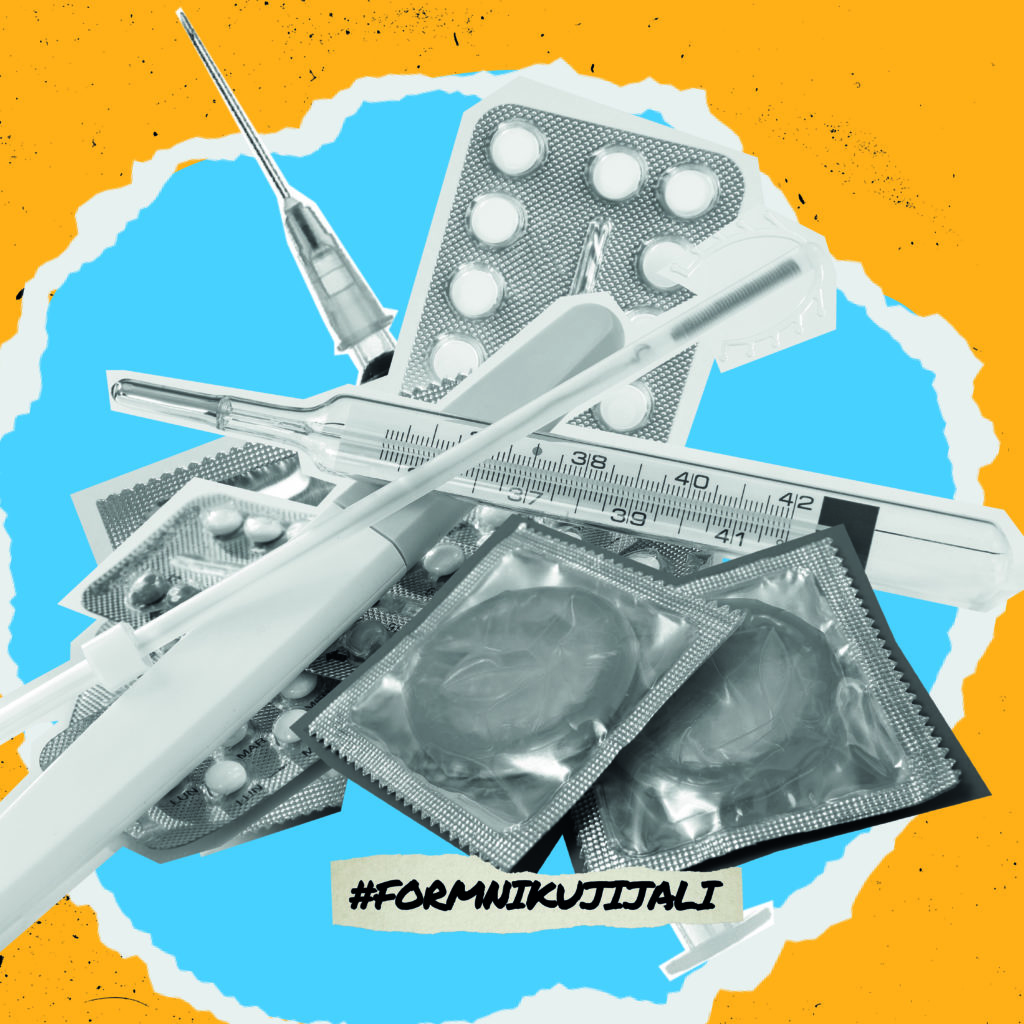#FormNiKujijali sparks dialogue on contraceptive self-care
According to the WHO’s definition, self-care in health refers to the ability of individuals, families, and communities to promote and maintain health, prevent disease, and cope with illness and disability with or without the support of a healthcare provider outside of health facilities.
As such, self-care is not new. It has been practised by communities throughout the ages. Yet recent developments across devices, products, and drugs provide new opportunities for personalised, proactive self-management of health and well-being. The pandemic has also ushered in new innovations and self-care practices as lockdowns have created barriers to services and strained healthcare systems.
For example in Kenya, the COVID-19 pandemic has substantially weakened the sexual and reproductive health service system. As a result, young people have had limited access to contraceptives of their choice. To better understand this new reality, Scope’s recent work for #FormNiGani, the Kenyan youth-led social mobilisation platform for family planning, explores youth’s relationship with self-care and engages in discussion on self-care intervention needs.
Self-care improves access to family planning
A wide range of innovative self-care products, from self-injectable contraception and pregnancy test strips to emergency contraceptive pills and pre-exposure prophylaxis, have entered the markets in recent years. For young people, this means new opportunities to take charge of their sexual and reproductive health, allowing them to exert greater autonomy over their lives.
When used correctly, self-care interventions have many beneficial elements, including convenience, reduced cost, and increased agency. At the same time, taking up self-care practices without proper guidance can lead to unnecessary expenditure or potential misuse. In Kenya, gaps remain in young people’s awareness of and access to self-care services as well as in the lack of connection from self-care products to health service follow-up.
To bridge these gaps and promote the safe use of self-care, we are exploring how #FormNiGani’s creative, influencer-led advocacy can be leveraged to deliver a campaign on contraceptive self-care and learnings for reproductive healthcare stakeholders to take forward. The campaign centres around increasing awareness of and demand for self-care while signposting to services, framing young people as change agents of their sexual and reproductive health.
Tuning in on young people’s family planning needs
We began planning the campaign with consultative discussions with reproductive health stakeholders in Kenya. Informed by the consultations, we undertook a rapid discovery, gathering insights from young Kenyans and healthcare providers to better understand the country’s current contraceptive landscape. Based on the research, we identified three findings forming the base of the experiential learning campaign.
Our study discovered that the COVID-19 pandemic has not just curbed access to services, but also increased awareness of and actions towards personal health. This provides fertile ground for creating a link between sexual reproductive health and self-care messaging. It also provides an opening for demand generation in new, self-care-focused services, products, and practices.
Another finding suggests that young people are more driven by the need to prevent unplanned pregnancies than the fear of contracting sexually transmitted diseases. Focusing on supporting young people in their sexual health management has strong potential for increasing wider self-care practices but it requires providing guidance that resonates with their wants and needs.
Our research also indicates that social media and peers have become the main influencers for young people to access information and make decisions regarding family planning. Peers have the power to steer young people away from self-care, acting as potential barriers to the adoption of new practices. At the same time, peer-to-peer learning can be leveraged to drive acceptance of reproductive self-care.
#FormNiKujijali campaign on contraceptive self-care
The above insights formed the base for the strategy creation of #FormNiGani’s nationwide, integrated public awareness campaign called #FormNiKujijali (the plan is self-care in Sheng) on contraceptive self-care. The campaign was co-created with our partner Reproductive Health Network of Kenya (RHNK), youth advocates, thought leaders, and influencers to enable stakeholders to develop and drive Kenyan-born messaging on contraceptive self-care.
For the campaign, we applied an innovative three-tiered approach to promote self-care. Firstly, it consists of a news media advocacy sprint to target decision-makers. Secondly, a creative influence-driven social media component to amplify young Kenyans’ demands for family planning and test their resonance with self-care messaging. Thirdly, a service provider component to drive young people’s access to counselling services and reproductive health products through a toll-free line set up by RHNK.
The #FormNiKujijali campaign, which is later going to share recommendations for interventions across the self-care journey, was well-received by young Kenyans. Based on preliminary campaign results, the experiential learning approach succeeded in sparking dialogue and introducing reproductive self-care into the public space in Kenya.
The #FormNiKujijali campaign was launched in October and ran through to November. You can follow the campaign on #FormNiGani’s website as well as on Facebook, Twitter, and Instagram.
Back to news

